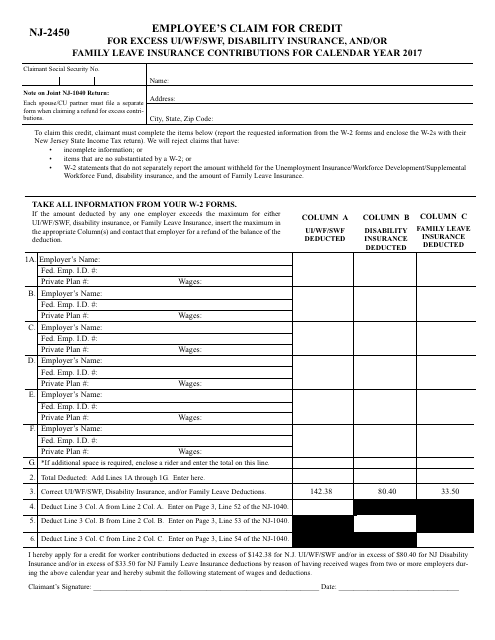- New Jersey State Disability Program
- Nj Disability Programs Download Free Version
- Nj Disability Application
The New Jersey Department of Human Services works in partnership with families, consumers, advocacy groups, service providers and state and municipal officials throughout the state to ensure that the rights of people with disabilities are protected and that they and their families have access to quality programs and services that meet their needs.
Services include, but are not limited to, the provision of health care for people with special needs, community living, employment-related and day programs, community-based mental health and in-patient care for both children and adults with emotional and behavioral problems, and assistive technological devices for people who are blind or deaf. Services for people with disabilities are accessed through the following divisions, offices and programs:


The Catastrophic Illness in Children Relief Fund (CICRF) provides eligible families with financial assistance for previously incurred medical expenses for their child that exceed 10% of the first $100,000 of income, plus 15% of any income in excess of $100,000. For children ages zero to 21, covered expenses include, but are not limited to, special ambulatory care, acute or specialized in- or out-patient hospital care, medical equipment, medically-related home and vehicle modifications such as ramps or wheelchair lifts, home health care, and medical transportation.
New Jersey State Disability Program
The Commission for the Blind and Visually Impaired (CBVI) coordinates and provides preventive, rehabilitative and assistive services to people who are blind or visually impaired or at risk of becoming so. Services include, but are not limited to, eye health screenings and assessments for adults and children, educational and vocational rehabilitation, summer training and development programs for students, and referrals to other services, as required.
The Division of the Deaf and Hard of Hearing (DDHH) is the State’s central information and referral service for people who are deaf and hard of hearing. This division helps people obtain devices and services required to help them better communicate and participate in daily life, such as text telephones (TTYs) and sign language interpreters.
The Division of Developmental Disabilities (DDD) coordinates and provides services for people with autism, intellectual disabilities, cerebral palsy, spina bifida and traumatic brain injuries. Services include counseling, respite care for family members, and referral services to other community-based resources needed. This Division operates five developmental centers, where people with developmental disabilities receive round-the-clock care. It also licenses privately operated group homes, supervised apartments, supported living programs and skill development and family care homes in communities throughout the State.
The Division of Disability Services (DDS) provides information and referral services to people with disabilities and their families, who are seeking help locating appropriate resources in their communities. The Division also is responsible for overseeing various Medicaid home-and community-based waiver programs that are designed to help people with disabilities live as independently as possible.
The Division of Medical Assistance and Health Services (DMAHS) provides health care for people with disabilities through its New Jersey Care 2000+ program. The program helps to enroll Medicaid-eligible aged, blind or disabled residents in Health Maintenance Organizations (HMOs) through which their medical care can be coordinated and managed. Referral and information also can be obtained by calling the Division of Disability Services at 1-888-285-3036.
The Division of Mental Health Services (DMHS) coordinates and provides community-based supports, like counseling, emergency screening, case management and residential and day program services and, if necessary, in-patient care for people with mental illness. Regarding the latter, this division operates five psychiatric hospitals in New Jersey.
DMHS assigns its Disaster & Terrorism Branch (DTB) to provide resources and crisis counseling during emergencies and disasters, both local, statewide and national. The DTB Director is responsible for activating the state's mental health disaster response plan in coordination with the NJDHS Emergency Social Services Coordinator and the New Jersey Office of Emergency Management, during a declared disaster. This includes natural disasters (floods, hurricanes, snow storms, forest fires) and man-made disasters (economic downturn, terrorist attacks, traffic disasters, international evacuations due to war, etc.). Services include crisis counseling, psychological first aid, consultation and training, information and referral, and toll-free warm line services.
Nj Disability Programs Download Free Version
Good Neighbors, Community Living for People with Disabilities, is the Department’s public education program to increase public awareness about people with disabilities and the kinds of community living arrangements in which they reside. As part of this effort, DHS representatives reach out to municipal officials, private organizations and New Jersey residents to provide information and to answer their questions, in hopes to achieve broader public acceptance and accommodations for people with disabilities.
Under the direction of DHS, an interagency team was formed in 1997 to discuss strategies for increasing and enhancing the inclusion of children with special needs in child care. Thus was the formation of what is now called the MAP to Inclusive Child Care Team, and information about this is found on this Resources for Including Children with Special Needs in Child Care page.
Nj Disability Application
Disability Rights New Jersey 210 S Broad Street, 3rd Floor Trenton, New Jersey 08608 1.800.922.7233 (in NJ only). 1.609.292.9742 (Voice). Both New Jersey workers and employers contribute to the cost of the temporary disability program. Workers contribute through deductions taken out of their paychecks. For 2020, workers contribute 0.26% on the first $134,900 in covered wages earned during this calendar year. The maximum worker contribution for 2020 is $350.74. The State of NJ site may contain optional links, information, services and/or content from other websites operated by third parties that are provided as a convenience, such as Google™ Translate. Google™ Translate is an online service for which the user pays nothing to obtain a purported language translation.
